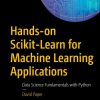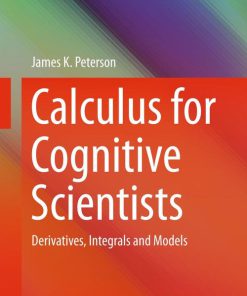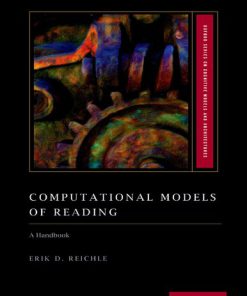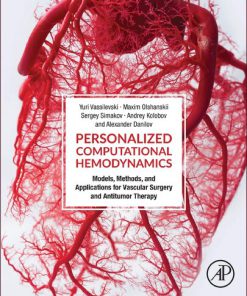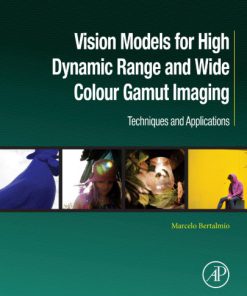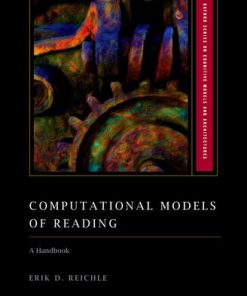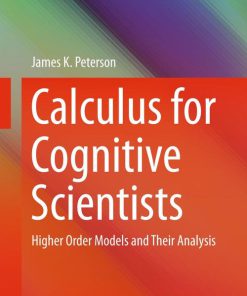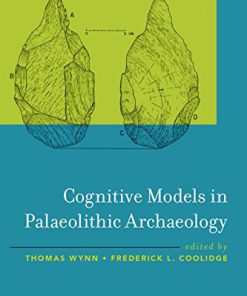Computational Models for Cognitive Vision 1st Edition by Hiranmay Ghosh 1119527864 9781119527862
$50.00 Original price was: $50.00.$25.00Current price is: $25.00.
Computational Models for Cognitive Vision 1st Edition by Hiranmay Ghosh – Ebook PDF Instant Download/DeliveryISBN: 1119527864, 9781119527862
Full download Computational Models for Cognitive Vision 1st Edition after payment.
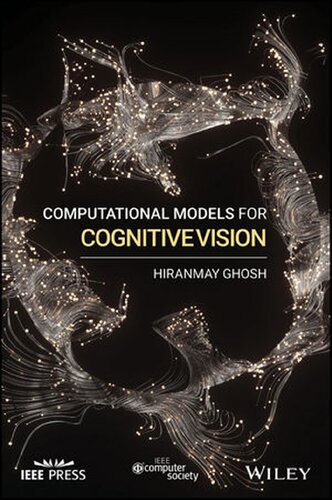
Product details:
ISBN-10 : 1119527864
ISBN-13 : 9781119527862
Author: Hiranmay Ghosh
Computational Models for Cognitive Vision formulates the computational models for the cognitive principles found in biological vision, and applies those models to computer vision tasks. Such principles include perceptual grouping, attention, visual quality and aesthetics, knowledge-based interpretation and learning, to name a few. The author’s ultimate goal is to provide a framework for creation of a machine vision system with the capability and versatility of the human vision.
Written by Dr. Hiranmay Ghosh, the book takes readers through the basic principles and the computational models for cognitive vision, Bayesian reasoning for perception and cognition, and other related topics, before establishing the relationship of cognitive vision with the multi-disciplinary field broadly referred to as “artificial intelligence”. The principles are illustrated with diverse application examples in computer vision, such as computational photography, digital heritage and social robots. The author concludes with suggestions for future research and salient observations about the state of the field of cognitive vision.
Computational Models for Cognitive Vision 1st Table of contents:
1 Introduction
1.1 What Is Cognitive Vision
1.2 Computational Approaches for Cognitive Vision
1.3 A Brief Review of Human Vision System
1.4 Perception and Cognition
1.5 Organization of the Book
2 Early Vision
2.1 Feature Integration Theory
2.2 Structure of Human Eye
2.3 Lateral Inhibition
2.4 Convolution: Detection of Edges and Orientations
2.5 Color and Texture Perception
2.6 Motion Perception
2.7 Peripheral Vision
2.8 Conclusion
Notes
3 Bayesian Reasoning for Perception and Cognition
3.1 Reasoning Paradigms
3.2 Natural Scene Statistics
3.3 Bayesian Framework of Reasoning
3.4 Bayesian Networks
3.5 Dynamic Bayesian Networks
3.6 Parameter Estimation
3.7 On Complexity of Models and Bayesian Inference
3.8 Hierarchical Bayesian Models
3.9 Inductive Reasoning with Bayesian Framework
3.10 Conclusion
Notes
4 Late Vision
4.1 Stereopsis and Depth Perception
4.2 Perception of Visual Quality
4.3 Perceptual Grouping
4.4 Foreground–Background Separation
4.5 Multi-stability
4.6 Object Recognition
4.7 Visual Aesthetics
4.8 Conclusion
Notes
5 Visual Attention
5.1 Modeling of Visual Attention
5.2 Models for Visual Attention
5.3 Evaluation
5.4 Conclusion
Notes
6 Cognitive Architectures
6.1 Cognitive Modeling
6.2 Desiderata for Cognitive Architectures
6.3 Memory Architecture
6.4 Taxonomies of Cognitive Architectures
6.5 Review of Cognitive Architectures
6.6 Biologically Inspired Cognitive Architectures
6.7 Conclusions
Notes
7 Knowledge Representation for Cognitive Vision
7.1 Classicist Approach to Knowledge Representation
7.2 Symbol Grounding Problem
7.3 Perceptual Knowledge
7.4 Unifying Conceptual and Perceptual Knowledge
7.5 Knowledge-Based Visual Data Processing
7.6 Conclusion
Notes
8 Deep Learning for Visual Cognition
8.1 A Brief Introduction to Deep Neural Networks
8.2 Modes of Learning with DNN
8.3 Visual Attention
8.4 Bayesian Inferencing with Neural Networks
8.5 Conclusion
Notes
9 Applications of Visual Cognition
9.1 Computational Photography
9.2 Digital Heritage
9.3 Social Robots
9.4 Content Re-purposing
9.5 Conclusion
Notes
10 Conclusion
10.1 “What Is Cognitive Vision” Revisited
10.2 Divergence of Approaches
10.3 Convergence on the Anvil?
People also search for Computational Models for Cognitive Vision 1st:
types of computational models
what is computational cognitive science
computational models examples
computational models of cognition
computational models of cognition berkeley
Tags: Computational Models, Cognitive Vision, Hiranmay Ghosh,
You may also like…
Computers
Calculus for Cognitive Scientists Derivatives Integrals and Models 1st Edition James K. Peterson
Computers - Computer Science
Computational Models of Reading A Handbook 1st Edition Erik D Reichle
Computers - Networking
Computers - Computer Science
Computational Models of Reading A Handbook 1st Edition Erik D Reichle 0190669098 9780190669096
Politics & Philosophy - Social Sciences


